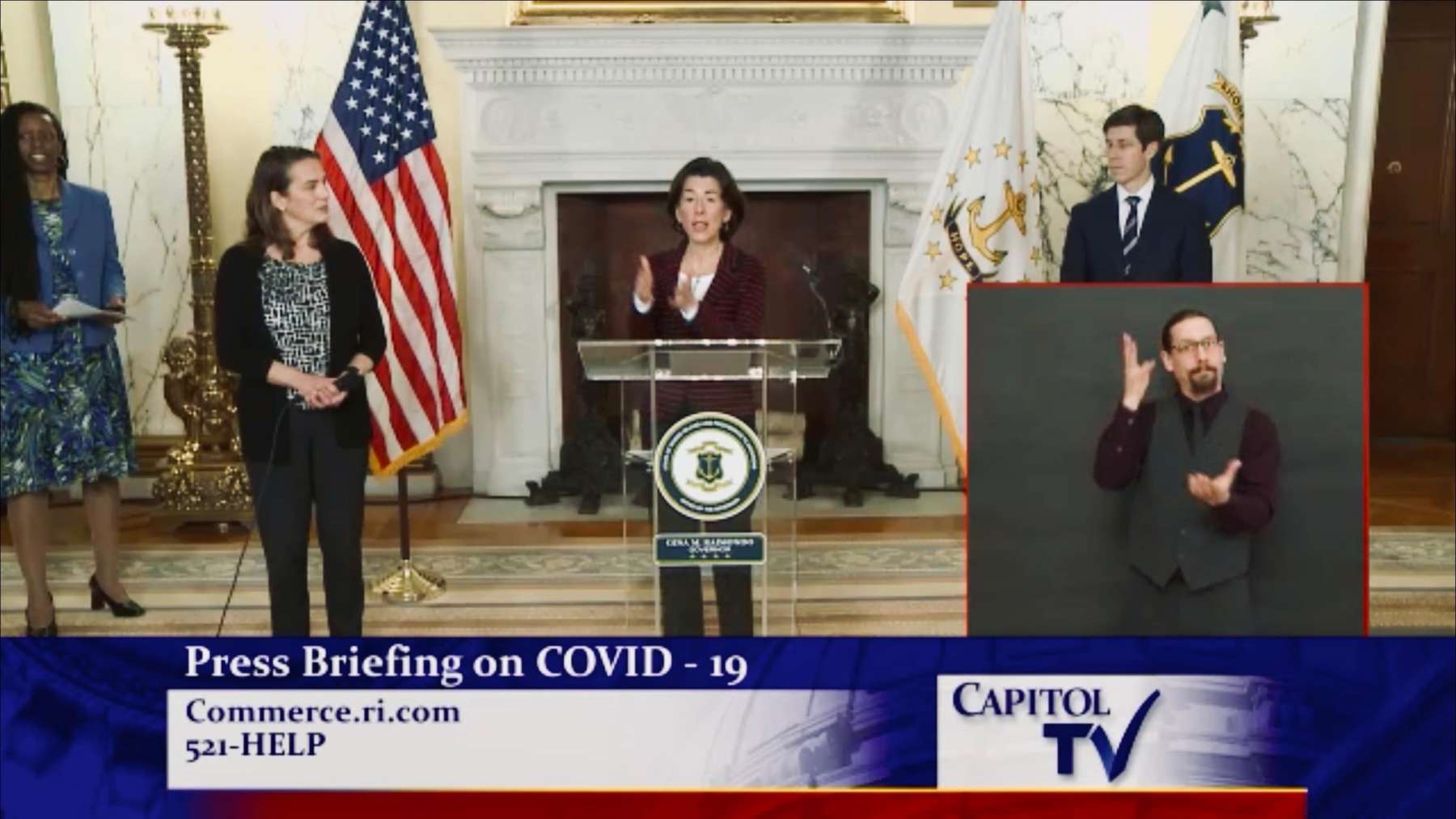Additional pay for frontline workers must come from federal government, says Raimondo
“The best way to handle that, I believe, is for the federal government to provide them with a wage subsidy.“ “If the Governor does not have the power to raise the wages for essential, frontline workers, shouldn’t the Rhode Island General Assembly take this up?” Uprise RI asked Rhode Island Governor Gina Raimondo at her daily COVID-19 press briefing. “People
April 13, 2020, 3:11 pm
By Steve Ahlquist
“The best way to handle that, I believe, is for the federal government to provide them with a wage subsidy.“
“If the Governor does not have the power to raise the wages for essential, frontline workers, shouldn’t the Rhode Island General Assembly take this up?” Uprise RI asked Rhode Island Governor Gina Raimondo at her daily COVID-19 press briefing. “People are risking their lives and the lives of their families. What not convene the General Assembly?”
“I agree with you that those low wage essential workers, healthcare workers, grocery store clerks, et cetera, who have to continue to go to work are working hard under difficult circumstances and potentially exposing themselves to the virus,” said Governor Raimondo.
“The best way to handle that, I believe, is for the federal government to provide them with a wage subsidy. And I’m working with our federal delegation in order to make that happen. I’m advocating to the Trump Administration and the treasury secretary that they make that a priority in the same way that the Congress has provided $600 a week extra in unemployment insurance. The same should be done to enhance the wages of people who have to go to work.
“You know, we’re helping out folks who’ve lost their jobs, which is a great thing. We also need to help out people who are still working. So I don’t think it’s as simple as passing a Rhode Island State Law to tell employers, all of whom are struggling themselves, that they have to increase wages. What has to happen is the federal government should subsidize wages to properly compensate low wage folks who have to go to work under these tough conditions. And I remain hopeful that that’s going to happen and I’m going to keep fighting for that.”
Rhode Island Senator Jack Reed has a plan:
The federal response Raimondo is talking about here seems to be a plan from United States Senate Democrats that Rhode Island Senator Jack Reed recently championed. The proposal would give essential workers who have been on the job during the COVID-19 pandemic a $25,000 hazard pay increase, the equivalent of an additional $13 an hour from the start of the public health emergency through December 31, 2020.
In a press release, Reed said that he wants to include federal funds in a future coronavirus economic rescue package, a “Heroes Fund,” to help compensate nurses, pharmacists, grocery store workers, delivery people and letter carriers, cleaning staff, public workers, and other unsung heroes who’ve been on the frontlines of the COVID-19 pandemic, risking their well-being to serve people in their communities.
“We really depend on frontline workers who do so much for so many,” said Reed in a statement. “From nurses providing care, to pharmacists filling our prescriptions, to grocery clerks stocking shelves and working the register, and all the delivery people and others in public-facing occupations we say thank you. And it is important to show we value the hard work of ‘essential workers,’ not just with words, but action. They faithfully reported for duty and deserve to be fairly compensated.
“At a critical time, these truly essential employees have made a world of difference by taking on risk, in order to serve the public,” continued Reed, “Young and old, they kept our economy going. Some of our lowest paid workers are big community heroes and they deserve to receive a fair wage for stepping up and putting in long, hazardous hours. We rely on them and want them to stay safe and healthy, and earn a living wage.”
The proposed COVID-19 “Heroes Fund” would:
- Provide each essential frontline worker the equivalent of $13 per hour premium pay on top of regular wages for all hours worked in essential industries from the start of the public health emergency until December 31, 2020.
- Cap the total maximum premium pay at $25,000 for each essential frontline worker earning less than $200,000 per year and $5,000 for each essential worker earning $200,000 or more per year.
- Offer a $15,000 recruitment ‘signing bonus’ incentive for health and home care workers and first responders to help attract and secure the workforce needed to fight the public health crisis. This portion of the bill would only apply to health care employees and first responders, not all essential frontline workers.
Unfortunately, no new legislation may be formally introduced until Majority Leader Mitch McConnell calls the Senate back into session, which is expected later this month.






